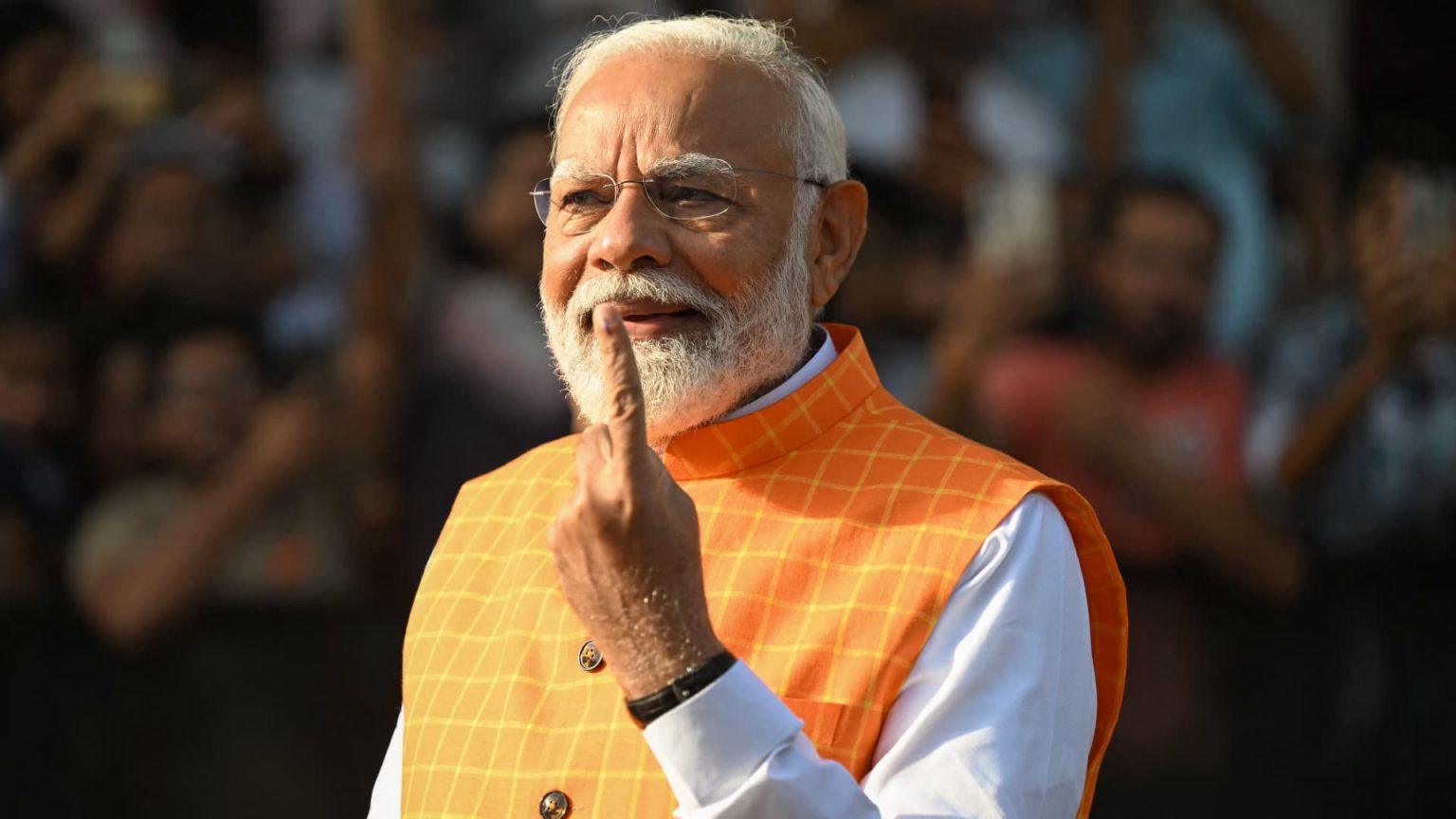Narendra Modi’s Bharatiya Janata Party-led National Democratic Alliance is poised to return to power in India, although with a reduced majority compared to the 2019 election. The latest data from the Election Commission of India shows the NDA leading on 294 parliamentary seats, while the opposition Indian National Developmental Inclusive Alliance is ahead on 231 seats. The BJP alliance won 353 seats in the previous election. Despite the reduced numbers, there is strong support for Modi to continue leading the country and address key issues facing Indian citizens.
Unemployment is a major concern for voters in India, with a survey revealing that 27% of respondents identified it as their top worry. During Modi’s second term in power, 62% of those surveyed found it harder to secure jobs. The country’s unemployment rate rose to 8.1% in April, indicating the challenges facing the labor market. Experts are waiting to see if Modi can create labor-intensive jobs to address the employment situation in the country, which remains a critical issue for many voters.
Financial markets in India experienced significant fluctuations as election results suggested that the BJP might not achieve a clear majority on its own. The Nifty 50 and BSE Sensex indexes both dropped by 8% with concerns over the election outcome. Market heavyweights such as Adani Ports and State Bank of India saw substantial declines in their stock values. While exit polls initially predicted a strong victory for Modi’s BJP, the results have created uncertainty in the financial markets.
Under Modi’s leadership, India has seen strong economic growth, with GDP expanding by 8.2% in fiscal year 2024. The International Monetary Fund projects continued growth for India in the coming years, positioning it as one of the fastest-growing economies globally. Modi’s government aims to achieve further economic milestones, fight poverty, promote growth, and combat corruption. However, critics have raised concerns about the state of democracy in India, pointing to restrictive measures used by the BJP to silence dissent.
As Modi prepares for another term, challenges such as countering China’s influence and promoting indigenous defense manufacturing capabilities loom large. The BJP’s manifesto outlines ambitious goals for the country, including becoming one of the world’s top three economies and addressing key social and economic issues. Despite criticisms of democratic decline under Modi’s rule, others highlight India’s vibrant electoral process as a testament to its strong democratic foundations. The election process sheds light on India’s emergence as a rising global player built on democratic principles and dynamic growth. Investors and analysts are closely watching how Modi’s government navigates these challenges and delivers on its promises to the Indian population.


